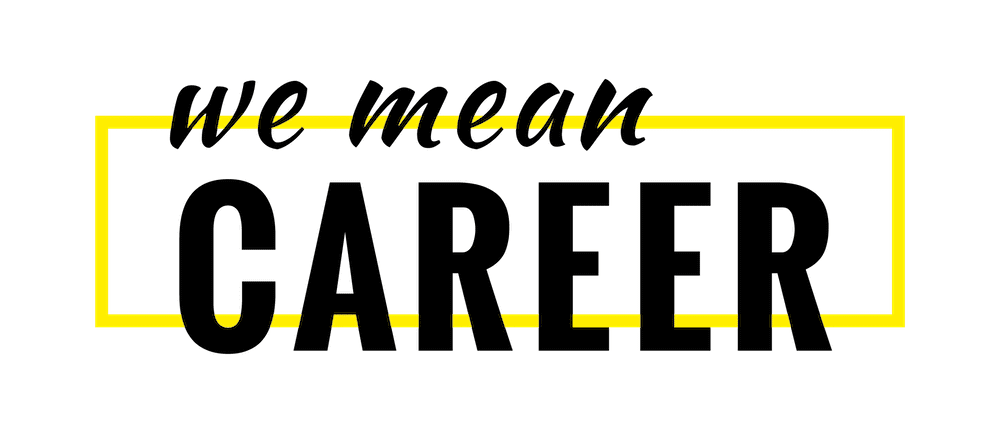HOW TO CHANGE YOUR CAREER AFTER 40

Photo by rawpixel.com
Introduction
If you’re over 40 and you’ve thought about switching careers you may have had the following thoughts go through your head:
“I can’t change careers now – I’m too old.”
“If I try to change, I won’t be able to support my family.”
“It’s too risky.”
“I don’t know if I have the skills for the job I want, so I should just stay where I am.”
“It’s too late to ever have my dream job.”
These and other limiting, negative beliefs may seem completely rational…
But they are wrong.
Your forties are a great time to switch to a new career. Here we’ll go through things to think about, challenges you may face (and can overcome!), and tips to help you move forward into a career you love.
If you’re already eager to land your dream job, check out our course “How to Land Your Next Job” to get started. Otherwise, read on!
3 Reasons Why a Career Change After 40 is a Great Idea
1. You’ve Got Plenty of Time to Learn a New Skill
Your forties are a time of emotional and mental maturity – you can go after what you want with confidence, and you have the ability to learn whatever skill you need to in order to put yourself in the best position to win.
Even if the direction you want to go seems completely out of alignment with where you’ve been and what you’ve been doing that’s okay! You have plenty of skills that will translate, and whatever you don’t know you can learn.
2. You’ll Feel Better
Your job should energize you, not make you miserable. Many women struggle with hormonal imbalance, depression, and general malaise due to stressful workplace environments. If that’s you, it’s time to go in a different direction.
You get one life – why not give yourself the chance to be uplifted by your work and excited to go to the office every day?
3. You Have Experience to Leverage
You’ve gained years of experience – put it to good use in a new way! Exercise your abilities, talents, and expertise in a new career that can benefit from what you offer. Look at all you’ve learned so far, and see how you can frame your current skill set to illuminate your worth and value for potential employers.
4. You’ll Have a Leg Up on Younger Applicants
There is no substitute for wisdom and experience. Many younger applicants will operate theoretically, as they have just graduated from school. Through your hands-on, real-world experience, you have already learned how to put theory into practice.
As you apply and interview for positions in your new career, have confidence in the unique perspective and wisdom you’ve gained from your time in the workforce and don’t be afraid to share it.
3 Common Challenges You May Face
1. Financial Responsibilities
If you have a particularly well-paying job, it may cause more than a little anxiety to think of leaving that behind. The answer: focus on where you’re going, and what you’ll gain, not what you’ll lose.
Every time you find your mind wandering into a fearful territory, pull it back with a reminder that you are making this choice for your overall wellbeing. In the end, the finances will balance out, especially if you are being mindful of your expenses and budget.
2. Education or Re-Education
It can feel daunting to enter a classroom setting in your forties. You may find that your fellow students are younger than you, or that the technology curve is throwing you for a loop. Stay the course.
If you’re not interested in attending a traditional classroom setting, find an online course that suits your needs. We live in an age of information, and that means that there is someone teaching almost anything you could want to know. The internet is full of helpful online courses from universities, entrepreneurs, and other experts.
When you research potential courses, look at reviews, comments, and success stories to see if those who have taken the program before you have truly benefited from the course. If you’re unsure of which course to take, don’t be afraid to reach out to the company or university directly to have your questions answered.
3. Deciding What You Want
You want to make a change, but you’re not sure what change you want to make. That’s okay. Commit to the change, and you’ll figure out what you want.
The best thing to do when you want to decide which direction to go is to spend some time in solitude so that you can really hear yourself. There are a lot of opinions out there that will tell you where to go, what to do, or what you should want, but none of those matter in comparison to what you desire for your life. Your life is your life. Manage your responsibilities, yes, but live on your own terms.
5 Tips for a Successful Switch
1. Leverage Your Past Experience
You’ve already learned a lot from where you are and where you’ve been. Don’t sell yourself short. Make a list of all the hard and soft skills you’ve cultivated throughout the years and see how you can frame or reframe them to apply to the position you want to land.
Re-work your resume, address applicable skills in your cover letters, and show confidence in your experience. The more positive you are about how much value you bring to the table, the more others will see it, too.
2. Gather Information from Multiple Sources
Utilize your network to learn about the landscape of your new career path. What is the earning potential? Is there room for growth? What new skills do you need to learn? What current skills are a great match?
Beyond people you know, use the internet, books, podcasts, and other sources to learn as much as you can about the career you want to pursue. In the world today, there is so much information readily available that it’s easy to gain the knowledge you need.
3. Add New Skills (or Brush Up on Old Ones)
As you research, you’ll start to see where your current experience aligns with your new career of choice, and where you may need to learn a new skill to put you in the best position to receive the job you desire.
Take a class, either in-person or online, read several books on the topic, or attend lectures or talks that are relevant to what you want to learn. It’s also a great idea to refresh some of your current skills that will help you in your new position.
4. Plan Your Finances
Any career change asks you to face the unknown. In order to support yourself as you make the transition, take a hard look at your financial situation. Be honest with yourself about what you need to save and how you may need to adjust your budget as you prepare to go in a new direction.
Don’t mistake financial planning for a reason to stay stuck where you are. You’ll never be able to save enough to feel completely secure in your decision to move in another direction. The point is to be stable enough in your finances that a little instability as you switch careers won’t entirely throw you off.
5. Take a Risk
This is perhaps the most important tip on this list. To dream about a career change is one thing – to actually act upon that dream is quite another.
No matter how much you plan, think, or fantasize, in the end, you’ll have to make the decision to jump. This requires faith, trust, self-belief, and the determination never to give up, no matter what comes.
(For more tips on changing careers, see our guide How to Change Careers.)
You may never feel quite ready to make a move to a new career, but if your heart tells you it’s time to make a change, then it’s time to make a change. Go before you’re ready. Trust that you’ll know what to do every step of the way – even if you can’t see too far beyond that. Choose your happiness, find the help you need, and take the leap. You’ve got this.
A new career is possible, and we want to help you get there. Join us for our online course, How to Land Your Next Job for important information, motivation, and education you need to secure your dream job. Also, be sure to check out our other guides for more helpful tips to move you toward a career that inspires you.



